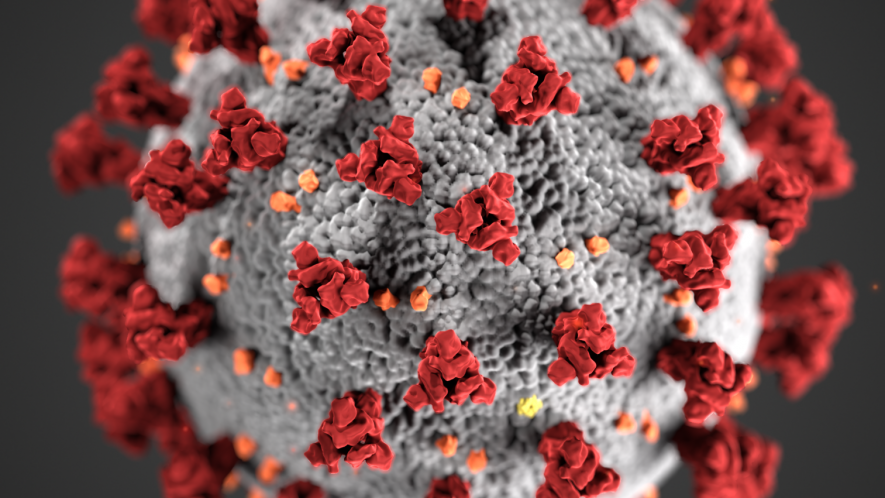COVID-19: Could a Generic Anti-Viral Drug be of any Use?

Emerging viral epidemics have become a major health concern, and an overwhelming number of these epidemics are caused by RNA viruses. In virus biology, a common factor is the mode of replication of the virus inside a host body – after entering a host cell, the virus manipulates the DNA of that host cell by integrating its own genetic material (DNA/RNA) with that of the host cell. Hence, the idea of a generic agent that could hamper this virus process has emerged as a mode of treatment. A characteristic of a generic drug is that it would prove effective against a wide spectrum of viruses, at least those who share commonality in their mode of infecting a host cell.
With a vaccine for it not expected in the near future, a generic anti-viral could also be an option against the SARS-CoV-2, the virus responsible for the COVID-19 pandemic.
A research paper in the journal Science , published on April 29, has reported on the efficacy of an already studied anti-viral agent in the case of SARS-CoV-2 as well.
The broad spectrum anti-viral that the team tried was shown to be active against other RNA viruses such as the influenza and Ebola virus. The drug agent, has been shown to be effective in cell lines and also in primary human epithelial cultures against coronaviruses including SARS-CoV-2. Again, in mouse models having SARS and MERS infections, this drug agent, if applied at an early stage, has demonstrated reduced viral replication and lung damage.
With this drug, the strategy adopted was to build a nucleoside analog. A nucleoside is a part of the building blocks of genetic material, either RNA or DNA. The nucleoside analog is analogous to the actual nucleoside present in the RNA of the virus. When this analog is applied to the virus, especially its RNA, it causes erroneous mutation in the viral RNA. This creates error catastrophe in the virus, making it unable to replicate and become virulent.
The generic anti-viral falls under the category of a small molecule drug. It is the ribo nucleoside analog β-d-N4-hydroxycytidine, the NHC (EIDD-1931). In a paper published in the Journal of Virology, in November 2019, it was reported that NHC inhibits SARS and MERS-CoV. Also, NHC provides a high genetic barrier to the resistance against it by the virus.
NHC potently hampers MERS and SARS-CoV-2 replication
The present study by Sheahan et al. performed anti-viral assays on cell lines. A cell line is a cell culture developed in the lab that proliferates indefinitely given a fresh medium for growth and the appropriate space. To assess the anti-viral activity on MERS CoV, human lung cell lines were used and NHC was applied and viral replication was measured for a range of doses of the drug over 48 hours. NHC was found to be potently anti-viral.
Clinical isolates of SARS-CoV-2 were used and anti-viral assay was also applied. In addition to this, the anti-viral activity was also measured in human lung cell lines, similar to the case of MERS CoV. In both cases, potency of the anti-viral activity with minimal cytotoxicity were observed.
NHC is active against SARS-CoV-2 in human airway cell culture
Cell cultures of primary human airways are also possible. The Primary Human Airway cells are essentially cells in the bronchi. These cells are readily infected by the SARS-CoV-2, including SARS and MERS coronavirus. When applied on these cell lines, the NHC has shown high activity against all three coronaviruses. As far as the cytotoxicity is concerned, NHC shows no cytotoxicity in these cell lines.
The NHC has already been found to be effective against influenza, coronaviruses, Ebola and Venezuelan equin encephalitis virus (VEEV). Moreover, its orally bio-available. The bioavailability of any substance, including a drug, is its ability to go into circulation when it enters the body. Oral bioavailability means that NHC can be taken orally.
An example of a nucleoside analog drug that is widely used is 5-fluorouracil, sold under the brand name ‘Adrucil’. This nucleoside analog is a drug used in chemotherapy for treating various cancer types like colon cancer, esophageal cancer and cervical cancer etc.
A nucleoside analog drug that can have broad spectrum anti-viral activity can be helpful in the treatment of a range of zoonotic diseases. However, human application and the approval for it is a long way away.
Get the latest reports & analysis with people's perspective on Protests, movements & deep analytical videos, discussions of the current affairs in your Telegram app. Subscribe to NewsClick's Telegram channel & get Real-Time updates on stories, as they get published on our website.
























